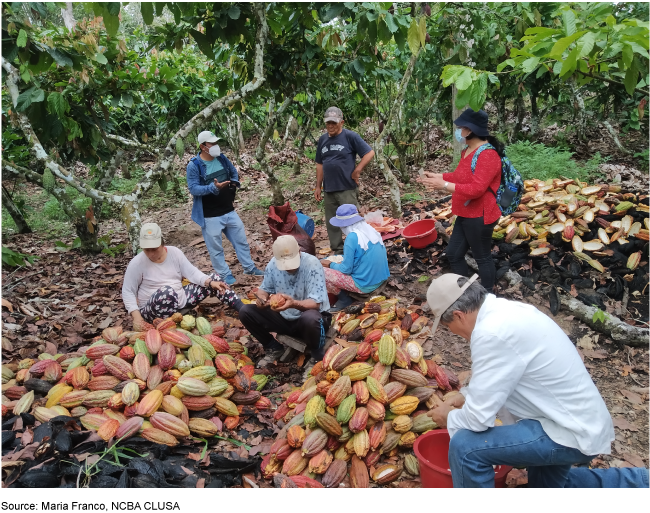Festus Amadu is a postdoctoral research associate in the Keough School of Global Affairs at the University of Notre Dame, where he works with Daniel Miller. Amadu’s research focuses on forests, trees, and livelihoods in Africa, with primary research activities that include compiling and analyzing data on the socioeconomic dimensions of forests and trees on farms in Malawi and several other countries in Africa. Other research interests include the use of applied econometrics to model the adoption, impacts, and pathways of climate smart and resilient agriculture in terms of food security and environmental sustainability in Africa.
Amadu earned his PhD in natural resources and environmental economics from the Department of Natural Resources and Environmental Sciences at the University of Illinois at Urbana-Champaign in August 2018. His doctoral studies were supported by a Borlaug LEAP Fellowship. During his PhD studies, Amadu completed an internship at the International Food Policy Research Institute in Malawi, where he also conducted his dissertation research. He conducted an ex-post impact evaluation of a climate smart and resilient agriculture program in southern Malawi. His dissertation research has been published in World Development, Ecological Economics, Food Policy, and Agricultural Systems.
Amadu earned a master of science degree in Agricultural and Applied Economics from the University of Illinois at Urbana-Champaign in 2014, and he holds undergraduate and master’s degrees in agricultural economics from the University of Sierra Leone.
Before coming to Notre Dame, Amadu was a postdoctoral research associate in the Department of Agricultural and Consumer Economics at the University of Illinois at Urbana-Champaign, where he worked on the $15 million USAID-funded project “Strengthening Agricultural and Nutrition Extension” (SANE) in Malawi. Amadu has extensive research, teaching, and project management experience related to sustainable agriculture and environmental management in African countries including Sierra Leone, Ghana, Liberia, Malawi, Nigeria, and Uganda.
Prior to his PhD studies in the United States, Amadu served as a lecturer in agricultural economics at Njala University in Sierra Leone and development economics at Fourah Bay College, University of Sierra Leone. He has also consulted for the United Nations where he contributed to several projects including the 2020 Africa Sustainable Development Report conducted by the UNDP-Regional Bureau for Africa where he developed a thematic background paper on UN Sustainable Development Goal 17 titled “Means of Implementation and Partnerships for the Goals.”
Recent Work
Amadu, F.O., McNamara, P.E., Davis, K.E., 2021. Soil health and grain yield impacts of climate resilient agricultural projects: Evidence from southern Malawi. Agricultural Systems, 193, 103230.
Amadu, F. O., McNamara, P. E., and Miller, D. C., 2020. Yield effects of Climate-Smart Agriculture Aid Investment in southern Malawi. Food Policy.
Amadu, F. O., Miller, D. C., McNamara, P. E., 2020. Agroforestry as a Pathway to Agricultural Yield Impacts in Climate-Smart Agriculture Investments: Evidence from southern Malawi. Ecological Economics.
Amadu, F. O., McNamara, P. E., and Miller, D. C., 2020. Understanding the Adoption of Climate-Smart Agriculture: A Farm-Level Typology with empirical evidence from southern Malawi. World Development.


